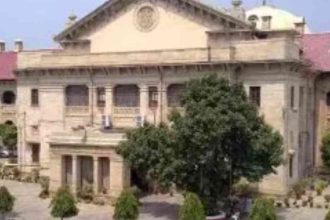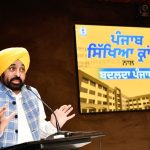
Union Minister G. Kishan Reddy extended a heartfelt gratitude to Prime Minister Narendra Modi for the historic decision taken by the Union Cabinet to include Caste enumeration as a part of the forthcoming decadal national census. He stated that this progressive step will be remembered as a major transformative change in Indian History.
He criticised the opposition parties for politicising the issue and resorting to political rhetoric in response to the announcement. Referring to the Congress party’s past actions, the Minister alleged that the Congress party historically undermined the interests of Backward Classes (BCs) by manipulating reservation policies and indiscriminately including the Muslim population under the BC category. He accused the Congress of creating religious and caste-based divides for political gain since independence.
He emphasised that Congress’s stance towards Scheduled Castes (SCs), Scheduled Tribes (STs), and BCs has been inconsistent and opportunistic. He recalled that the Congress party opposed the nominations of Shri Ram Nath Kovind and Droupadi Murmu as a presidential candidate solely because of their SC and ST backgrounds.
The Minister noted that the longstanding Madiga reservation issue was actively pursued and legally supported by the Modi government, paving the way for sub-categorisation within SCs. He further accused the Congress of disparaging Prime Minister Modi based on his caste and of shedding “crocodile tears” for BCs without taking substantive steps for their welfare.
Highlighting significant milestones under the Modi government, Kishan Reddy mentioned the 2018 constitutional status granted to the National Commission for Backward Classes, the 10% EWS reservation for economically weaker sections among upper castes in 2019, and the abolition of Triple Talaq, which ensured justice and empowerment for Muslim women.
He stated that the BJP-led NDA government has always worked with the inclusive motto of “Sabka Saath, Sabka Vikas”, ensuring that no community feels excluded from the nation’s developmental journey.
Addressing the historical context, the Minister explained that caste enumeration was part of the census process from 1881 to 1931, but post-independence, under Congress leadership, caste data collection was discontinued from 1951 onwards. Prominent Congress leaders such as Jawaharlal Nehru and Maulana Azad publicly opposed caste-based enumeration, and Rajiv Gandhi rejected the Mandal Commission’s recommendations in Parliament in 1990, stating that minority populations such as muslims also need to be uplifted as they were socially, economically backward.
Kishan Reddy recalled that in 2010, Prime Minister Dr. Manmohan Singh promised to form a subcommittee on caste census, but failed to act. However, Sushma Swaraj, on behalf of the BJP, wrote a letter supporting the caste census to the then Finance Minister Pranab Mukherjee. Despite this, the 2011 Census excluded caste enumeration due to opposition from then Home Minister P. Chidambaram.

He reiterated that the BJP has consistently supported caste enumeration, provided it is conducted scientifically and impartially, and not used as a political tool. He said that accurate caste data is crucial for the effective implementation of welfare schemes and affirmative action policies.
G Kishan Reddy strongly opposed the inclusion of Muslims under BCs, stating that such decisions are unconstitutional and contrary to judicial verdicts. He also criticised the Congress party’s caste surveys in Telangana and Karnataka as unscientific and politically motivated, designed to claim credit rather than ensuring social justice.
He emphasised that a genuine caste census requires methodical and nationwide coverage, not hurried exercises that fail to even reach 50% of the population. He said that the central government’s approach is rooted in data-driven policymaking and scientific accuracy.
The Minister clarified that the caste census is conducted once every decade, and the next such opportunity will arise with the 2026 National Census, which will be the first census under BJP rule since 2014. He called upon Congress leader Rahul Gandhi to explain why the Congress never implemented caste enumeration despite repeated opportunities.
Referring to the Telangana BC survey conducted by the state government, Kishan Reddy termed it anti-BC, particularly due to the inclusion of BC Muslims, which the BJP firmly opposes. He highlighted that in Hyderabad’s 150 municipal seats, out of 50 BC-reserved seats, 30 were won by Muslims, further skewing representation.
Concluding his address, G Kishan Reddy emphasised that the government would bring an amendment to the Census Act, 1948, to legally incorporate “caste” as a parameter. This legislative amendment would be introduced in the upcoming Parliament session, after which the caste census would proceed in alignment with constitutional norms and judicial directives, including those laid out by the Andhra Pradesh High Court.
He asserted that neither the Congress party nor the BRS has ever worked with sincerity on BC issues or social justice. He assured the people that the Modi government is committed to social justice for all communities through a transparent, scientific, and inclusive caste census process.










